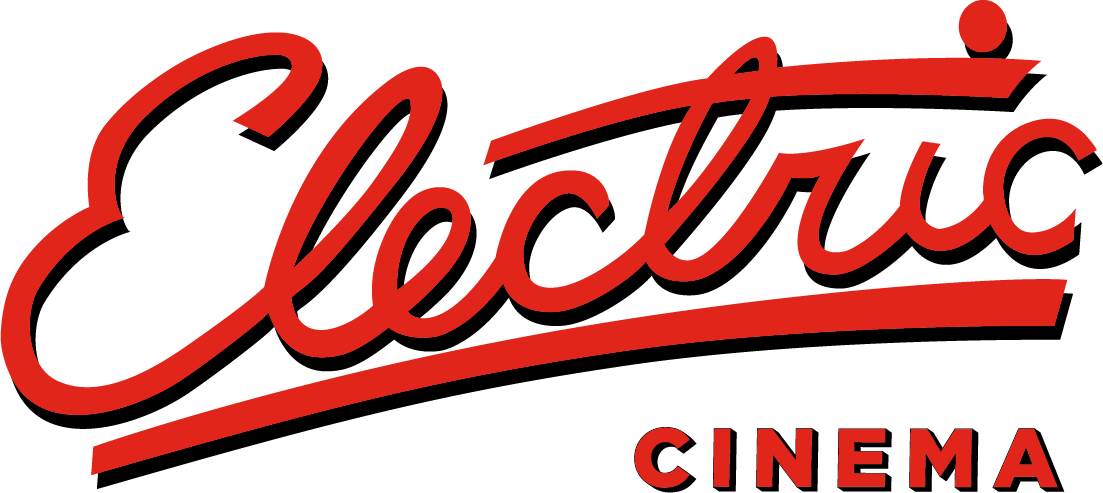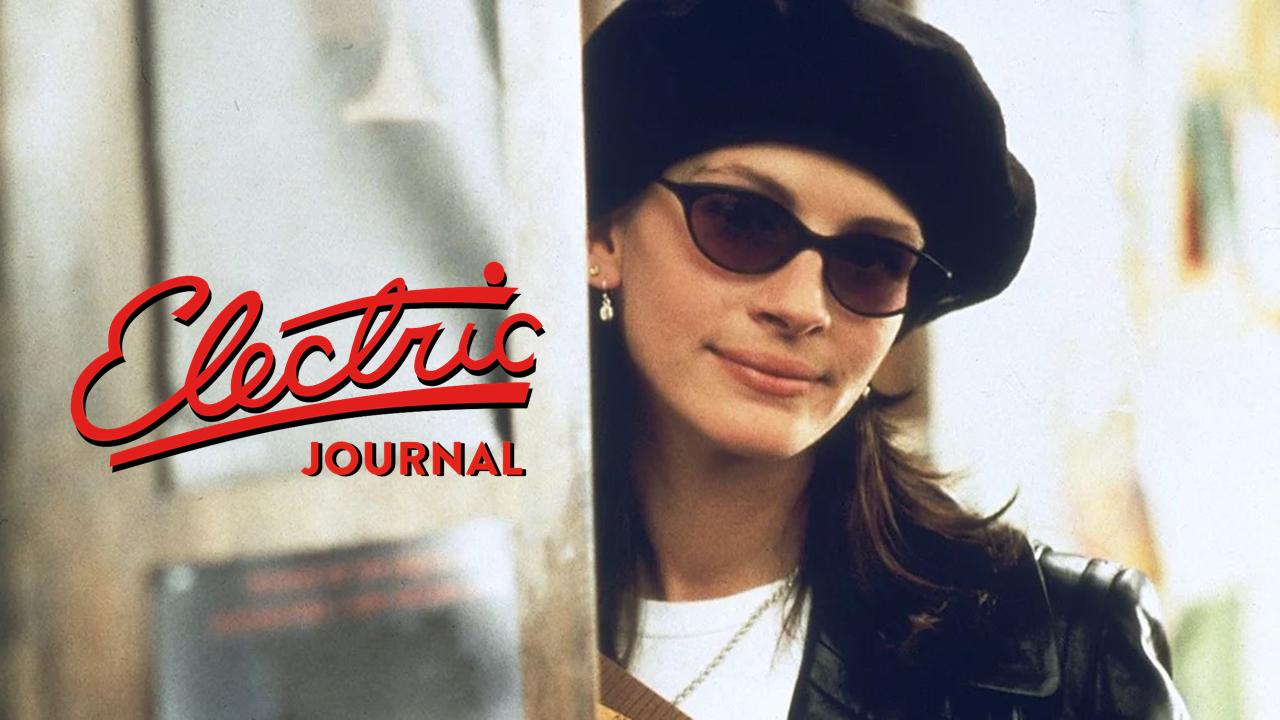The iconic rom-com Notting Hill is a national favourite and holds a special place for us at the Electric, playing to sold out screenings each time we play it.
The film features in film journalist, Corrina Antrobus’s marvellous new book, I Love Romcoms and I Am a Feminist: A Manifesto in 100 Romcoms. Corrina joined us recently to introduce a screening and we are thrilled to share the essay on Notting Hill here.
Keep checking our website for screenings of Notting Hill throughout the year and you can purchase Corrina’s book here and at all good book stores.
Notting Hill
The one that humanised the Hollywood actor
Year: 1999
Writer: Richard Curtis
Director: Roger Michell
Notting Hill gives us two meetcutes for the price of one. After the first, which sees dusty book lover Anna (Julia Roberts) meet dusty bookshop owner William (Hugh Grant), we see them collide on the street in a coffee spill catastrophe. As Will dissolves into his signature “whoopsi daisy” mess, his bubbling verbal lava has him babbling something about a prostitute. It can be read as a nod to Roberts’ fantastical role of Vivian in the astronomical hit Pretty Woman, but in the latte lacquered streets of Notting Hill, she’s more than a fetishised version of a sex worker. Here, she’s ‘just a girl, asking a boy to love her’.
The meta wiring of Notting Hill doesn’t end there – this movie simply doesn’t work without Julia Roberts being Julia Roberts. No need to pretend she’s the most famous Hollywood star in the world because here she is, playing herself. In lines that twinkle with a knowing wink, Juli… sorry – Anna Scott, breathes humanity into challenges an actress in the tabloid infested 90s faced. Especially Roberts who endured headlines like ‘Pretty Fickle Woman’ as a result of a merry-go-round love life.
In a dinner party scene, a game of Schadenfreude top trumps sees guests try to win the last brownie with their story of woe. It’s here where Will’s starstruck friends get a sobering insight into the challenges Anna faces for just doing her job. We’re talking the 10 year diet, the painful surgery and the numerous heartbreaks lived out in public. Later, her ‘sex tape’, further reveals the lose-lose situation of women in the spotlight.
Ok her life may not be as tough as Bella’s (Gina McKee) who can’t have kids after an accident left her wheelchair-bound, but come the credits we know how mentally difficult Anna’s life is. This context later warrants her anger and necessary little white lies she tells Will for self protection – Anna is not being irrational, Will’s being naive.
The most empowering thing about Jul.. sorry, Anna, is that she never sacrifices her career, stiffly says how much she gets paid when undermined ($20m, btw), and calls the shots in the courtship throughout. In a telling closing sequence, Anna expertly glides across a red carpet as Will awkwardly trips up. They may be together but he’s going to have to keep up, as it’s still her world – he’s just living in it.
Other films…
My Wife Is An Actress (2002) A comic embrace of fragile masculinity when paranoia plagues a man married to an actor. That actor? Charlotte Gainsbourg.
La La Land (2016) Maybe the fact that Emma Stone’s character is undermined by Ryan Gosling is the very point being made about women in acting? Tell yourself that to enjoy it that bit more.
A Star Is Born (2018) – A tale so significant it was made four times between 1937 and 2018. Perhaps proving the story of a man’s talent being eclipsed by his woman will always be ripe for dramatic storytelling.

